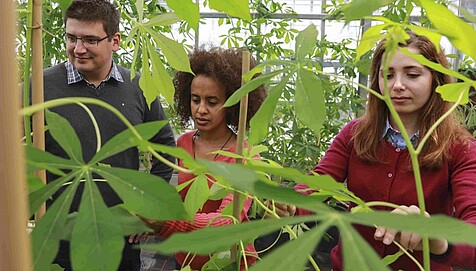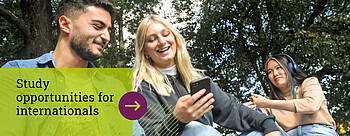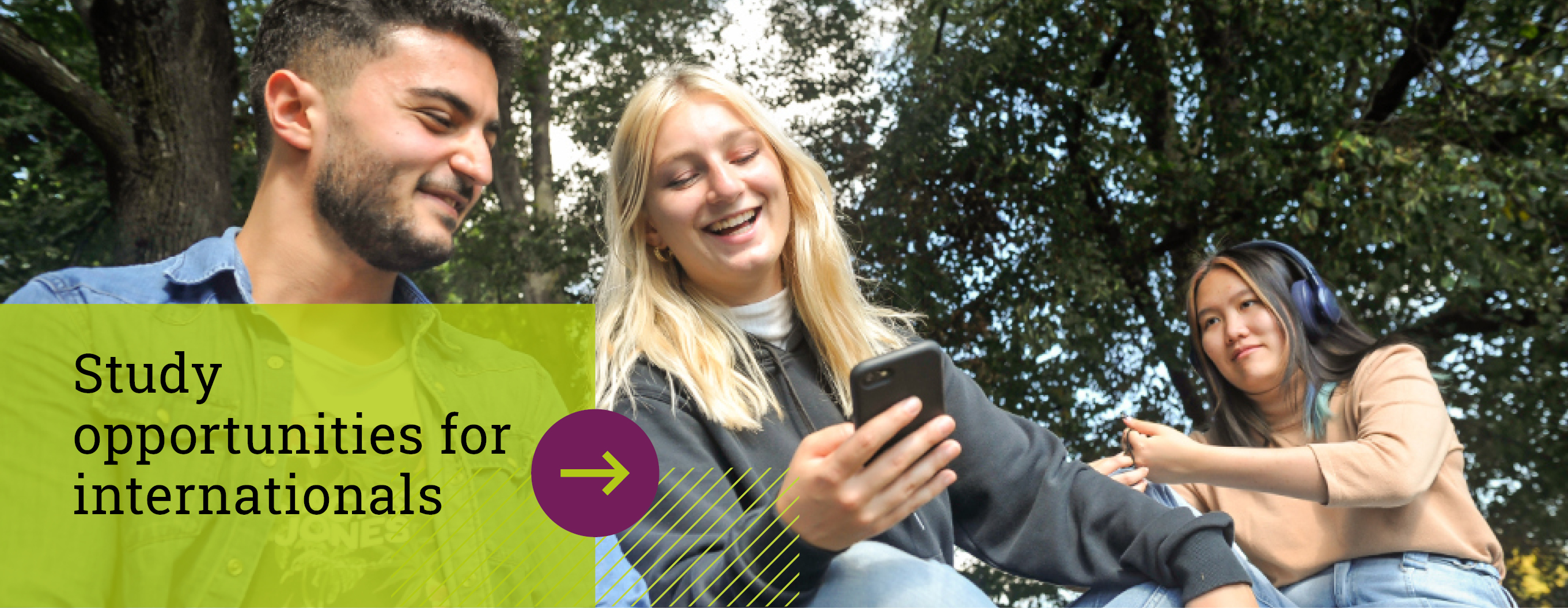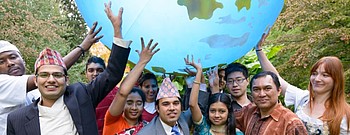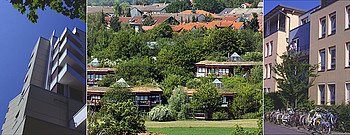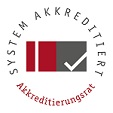Agricultural Sciences in the Tropics & Subtropics (Master’s)
International agriculture degree program with a focus on development aid
Agricultural Sciences in the Tropics & Subtropics (Master’s)
International degree programs for agricultural research focused on development
Continued population growth, climate change, and an increasing use of resources are threatening the livelihoods of millions of small farmers. Only with an interdisciplinary effort based on evidence-based, scientific knowledge can a paradigm shift towards agroecological, sustainable, and highly productive agriculture be achieved that will secure these farmers their livelihoods and people their food in the long term.
AgriTropics provides broad-based knowledge in tropical agriculture and combines interdisciplinary approaches in a degree program that specifically trains you in development-oriented agricultural research, preparing you to lead multidisciplinary teams.
You can choose to study the degree programs as a "Single Degree" in Hohenheim or as a "Double Degree" with the Czech University of Life Sciences in Prague.
What you can expect:
- Interdisciplinary studies focused on sustainable agricultural systems in the tropics
- Can be studied either as a single degree in Hohenheim or as a double degree with the Czech University of Life Sciences in Prague
- Excellent career opportunities in international organizations
- Reasons to Choose Hohenheim
| Degree Master of Science |
4 semesters 120 credits |
Language English |
University places Unlimited |
Location Stuttgart |
|||||
| 1st Semester | 2nd Semester | 3rd Semester | 4th Semester |
|---|---|---|---|
| Crop Production Systems (6 Credits) |
Interdisciplinary Practical Science Training (7.5 credits) |
Elective Module (6 Credits) |
Master Thesis (30 Credits) |
| Ecology and Agroecosystems (6 Credits) |
Elective Module (7.5 credits) |
Elective Module (6 Credits) |
|
| Methods in Interdisciplinary Collaboration (6 Credits) |
Elective Module (7.5 credits) |
Elective Module (6 Credits) |
|
| Natural Resource Use and Conservation in the Tropics and Subtropics (6 Credits) |
Elective Module (7.5 credits) |
Elective Module (6 Credits) |
|
| Livestock Production Systems and Development (6 Credits) |
Elective Module (6 Credits) |
In the first academic year,
you will deepen your knowledge in six compulsory modules. Lecturers present and analyze many aspects of agriculture in tropical and subtropical agroecosystems in these modules. In addition to animal production and plant production, you will learn about systemic interrelationships.
The program focuses on the ecology of tropical agricultural systems and on the economy and social significance of small-scale farming systems in the tropics and subtropics. In practical modules, students examine and explore responsible use, recycling, and conservation of natural resources in-depth.
In the first year of study, special emphasis is placed on methods of interdisciplinary cooperation, and teamwork in student groups is practiced. Besides the compulsory modules, you choose three modules from more than 15 elective modules specific to the tropics and subtropics for your specialization.
In the second academic year,
you choose five more modules from a wide range of elective modules. This allows you to develop your individual professional profile and tailor your knowledge to your career aspirations.
In the second year, you will also carry out research on a subject-specific Master's thesis topic. This research work is usually carried out as part of an international, development-oriented research project in the target countries being conducted by the department of the instructing lecturers.
If you opt for the double degree with the Czech University of Life Sciences, you will transfer to the partner university in Prague for your third and fourth semester.
Students who do not wish to take advantage of this option still have the possibility to spend a semester abroad and have their achievements recognized.
The academic program advisors advise you on your choice of modules and in planning your studies to ensure that you progress smoothly and directly.
The degree program is designed to teach the following skills and competences:
- Specific knowledge in development-oriented agricultural research
- Competence in multidisciplinary and interdisciplinary cooperation
- Ability to assess the influence of availability, quality, and quantity of natural resources on agricultural production in tropical and subtropical agro-ecosystems
- Ability to evaluate the effectiveness of material cycles (water, nitrogen, carbon) in agricultural production systems at different temporal and spatial scales
- Ability to take advantage of opportunities to reduce post-harvest losses and encourage innovation in product processing
- Ability to manage and promote gender-sensitive development and extension approaches for sustainable agricultural production at different levels (farm, project, institution, administration, policy) in a socio-economic context
- Competence and capacity to take a leadership role in improving the marketability of agricultural products and increasing rural incomes by reducing infrastructural constraints or socio-economic limitations to market access
- Transfer and application of integrated knowledge for management recommendations and to evaluate different strategies for the sustainability of agricultural production in the context of climate change.
More information about the individual modules can be found in the module descriptions.
The curriculum is designed to teach the following skills and competences:
- Specific knowledge in development-oriented agricultural research
- Competence in multidisciplinary and interdisciplinary cooperation
- Ability to assess the influence of availability, quality, and quantity of natural resources on agricultural production in tropical and subtropical agro-ecosystems
- Ability to evaluate the effectiveness of material cycles (water, nitrogen, carbon) in agricultural production systems at different temporal and spatial scales
- Ability to take advantage of opportunities to reduce post-harvest losses and encourage innovation in product processing
- Ability to manage and promote gender-sensitive development and extension approaches for sustainable agricultural production at different levels (farm, project, institution, administration, policy) in a socio-economic context
- Competence and capacity to take a leadership role in improving the marketability of agricultural products and increasing rural incomes by reducing infrastructural constraints or socio-economic limitations to market access
- Transfer and application of integrated knowledge for management recommendations and to evaluate different strategies for the sustainability of agricultural production in the context of climate change.
Graduates have very good chances on the international job market. Possible fields of work depending on the profile focus are e.g.:
- International and national agricultural research centers (CGIAR or departmental research)
- Ministries for development cooperation, land or environmental protection - Development cooperation organizations
- Consulting firms
- International or national non-governmental organizations
- Universities and other research institutions
- Businesses in the agricultural sector
- EU institutions
It makes sense to complete internships (international or in Germany) within the Master's program. The lecturers in the program are happy to help arrange such offers. In addition, the Master's program qualifies students to embark on a doctoral project. Most universities as well as most graduate schools expect above-average performance in the Master's program for this.
Jonathan Löffler, Germany, Graduate of 2019
Sourcing specialist for fatty oils, waxes
 "You feel passion for issues connected to countries in the global south? Agricultural practices, interdisciplinary collaboration and scientific methods interest you? The Agritropics program in Hohenheim clearly is an excellent option to build up solid background knowledge in this field. Moreover, you can proactively specialize and advance in subjects of free choice. Personally, I enjoyed the international community in the Agritropics program. It gave me the opportunity to get in touch with people and topics, who were as diverse as the tropics!"
"You feel passion for issues connected to countries in the global south? Agricultural practices, interdisciplinary collaboration and scientific methods interest you? The Agritropics program in Hohenheim clearly is an excellent option to build up solid background knowledge in this field. Moreover, you can proactively specialize and advance in subjects of free choice. Personally, I enjoyed the international community in the Agritropics program. It gave me the opportunity to get in touch with people and topics, who were as diverse as the tropics!"
Sangeun Bae, South Korea, currently an intern with the GIZ in Ghana, Graduate of 2018
 "AgriTropics provides you with diverse opportunities to design your own learning experience and career pathway. Cooperations with many organizations, both within and outside Germany expose you to seminars and internship opportunities where you can build your knowledge base. Professors have an international recognition and their projects offer great research topics for your thesis. Not to forget the valuable friendships with colleagues from all over with world!"
"AgriTropics provides you with diverse opportunities to design your own learning experience and career pathway. Cooperations with many organizations, both within and outside Germany expose you to seminars and internship opportunities where you can build your knowledge base. Professors have an international recognition and their projects offer great research topics for your thesis. Not to forget the valuable friendships with colleagues from all over with world!"
Guilherme Amorim Franchi, Brazil, PhD Fellow an der Aarhus University, Graduate of 2017
 "If you are proactive, cooperative and interested in agricultural sciences, Hohenheim is the right place for you. You will have hands-on experience in a range of agricultural science fields under the supervision of internationally-known scientists in a multicultural environment. So, be prepared to profit from a broad network and seek the best professional opportunities worldwide. Surely, studying at the University of Hohenheim was very important to my career and personal development."
"If you are proactive, cooperative and interested in agricultural sciences, Hohenheim is the right place for you. You will have hands-on experience in a range of agricultural science fields under the supervision of internationally-known scientists in a multicultural environment. So, be prepared to profit from a broad network and seek the best professional opportunities worldwide. Surely, studying at the University of Hohenheim was very important to my career and personal development."
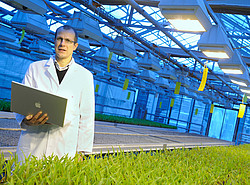
Good reasons to study at the Faculty of Agricultural Sciences in Hohenheim
First Place not Once but Three Times: The current Global Universities Ranking from U.S. News & World Report, the renowned NTU ranking, QS World University Ranking, and dathe Center of World University Ranking put University of Hohenheim’s agricultural research in 1st place in Germany.
In the agricultural university ranking from top agrar, the agricultural students at the University of Hohenheim give the grades 1.5 to 2.0. According to the ranking 2016, 88% of the students surveyed would recommend the University of Hohenheim for agricultural studies.
The University of Hohenheim puts great importance on quality teaching, which is demonstrated by several award-winning reform projects.
These projects include for example mobile teaching (German e-learning innovation and young scientists award (d-elina) in the category “Campus” at the BITKOM) or the ethics module, developed by the student group FRESH and awarded by the UN.
The study program was designed in cooperation with representatives from the GIZ (German Federal Enterprise for International Cooperation) and instructors from the Hohenheim institutes for the tropics and subtropics and offers a perfectly tailored education for working in the area of development.

The vision of the Faculty of Agricultural Sciences is a global agricultural system which is productive, environmentally-friendly and socially-minded, and which is in harmony with society’s demand for a multi-purpose orientation.
Agricultural research at the University of Hohenheim is focused on four areas:
- Food for all: Security of global food supply
- Hazard prevention: Climate change and scarcity of resources
- Beyond fossil fuels: Bioenergy and bio-based value-creation networks
- Diversity instead of monoculture: Genome Diversity in Agriculture
There are no easy answers to these kinds of questions. That is why agricultural researchers at the University of Hohenheim work across disciplinary boundaries, collaborating with colleagues in the natural sciences, business administration and economics, and the social sciences, for instance in bioeconomics, a field of research and teaching that will become even more important in the future. That collaboration also has an impact on teaching.
Number 1 in internationalization: In the current EU ranking U-Multirank, the University of Hohenheim has a top spot in internationalization.
The basis for this placing is the decades-long, global commitment of the Agricultural Sciences. Especially our tropics research with 10 professorships has made the University known around the world.
International opportunities for students:
- 80 partner institutions worldwide (40 of which are in the Erasmus+ program)
- Member of the Euroleague for Life Sciences - the network for Europe’s best
- scholarship programs for travel, research, and exchange
- Worldwide alumni network
- Studies according to international standards for excellence and international competitiveness of graduates
Professors of the Faculty of Agricultural Sciences are in high demand.
The top experts include:
 | Chair of the scientific advisory council Prof. Dr. Martina Brockmeier The German Council of Science and Humanities is considered the highest-ranking advisory committee on topics of science in Germany. Its scientific members are appointed by the Federal President. |
 | In the Bioeconomy Council Prof. Dr. Regina Birner The Bioeconomy Council is an independent advisory committee for the German federal government. The goal: to establish a cross-sectoral and bio-based economy in Germany that uses as few fossil raw materials as possible. |
Further members in important commissions and expert lists
- Prof. Dr. Iris Lewandowski and Prof. Dr. Joachim Müller are members of the BMBF scientific advisory council "Agricultural Systems of the Future”
- Prof. Dr. Enno Bahrs is member of the BMEL scientific advisory council for biodiversity and genetic resources
- Expert lists on various agricultural topics

Scholarship and awards for studies, final theses, travel, and attending conferences: Thanks to many supporters, the University of Hohenheim has an unusually extensive scholarship culture.
Around 100,000 Euros is the total amount of all scholarships and awards that are presented each year at the Dies academicus.
More than 700 hectares of test area: Among German universities, the University of Hohenheim owns the largest amount of property. For students, this means a lot of room for their own experiments, research, and a great deal of hands-on experience.
Also directly on campus: State institutes for transferring science into practice, the Hohenheim Gardens, and the German Agricultural Museum.

The University of Hohenheim is a university with a long tradition. You will experience a truly unique university atmosphere enriched by the Baroque palace, the historic gardens and parks, and modern architecture: In 2009, the University of Hohenheim was declared the most beautiful campus university in the state.
In 2017, Hohenheim's President Stephan Dabbert was chosen by the German Association of University Professors and Lecturers (DHV) as the most popular president in Baden-Württemberg for the third year in a row. He was ranked second in all of Germany.
This jewel is located south of the state capital Stuttgart. Because it is close to Stuttgart, you have all the opportunities available in a big city. The University of Hohenheim is only a few minutes away from the airport, the Stuttgart Trade Fair Centre, and the autobahn and is easily reached with public transportation.
 | Unique party atmosphere: The historical Thomas-Müntzer-Scheuer, an old barn with a new purpose, is the party center of Hohenheim. |
 | The University ball in the pompous palace rooms is the social event of the year. |
If you choose the double degree option, you will spend the second academic year at your host university in Prague.
Even if you choose the single degree, it is still possible to spend the second academic year abroad due to the flexibility of the curriculum in the second year. You can easily have the credits earned there recognized as elective modules. This means that spending time abroad will not typically extend the amount of time you need to complete the program.
In both cases, you can also complete your Master's thesis abroad.
The Faculty of Agricultural Sciences engages in research and teaching cooperation with 80 partner institutions worldwide, 40 of which are part of the ERASMUS program.
The University of Hohenheim’s Office of International Affairs offers information and advising on stays abroad and how to finance them through scholarships.
| Start of the application period | |
|---|---|
Non-EU citizens: Mid-November of the year before the program starts |
| Application deadlines | |
|---|---|
| 1st subject-related semester | Only possible for the winter semester! German, EU citizens: 15 September Non-EU citizens: 15 March |
Higher subject-related semesters | For the winter semester: All applicants: 15 January |
| Requirements | |
|---|---|
| Admission requirements |
|
| Selection procedure | |
|---|---|
| Selection criteria | No However, an above-average overall grade in the Bachelor's degree course and a suitable previous degree course are admission requirements. For details, see the Admission Regulations (in German). |

